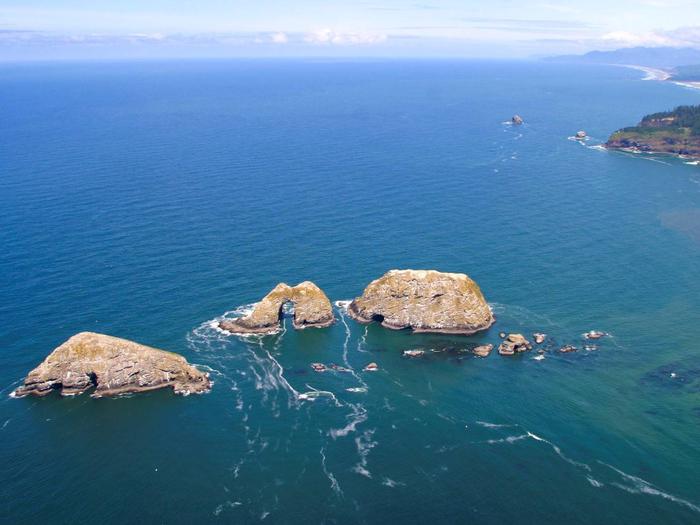Three Arch Rocks National Wildlife Refuge
In October of 1907, Three Arch Rocks National Wildlife Refuge was established as the first National Wildlife Refuge west of the Mississippi River. The protection of Three Arch Rocks as a National Wildlife Refuge was largely due to the efforts of two young conservationists: William L. Finley and Herman Bohlman, who convinced President Teddy Roosevelt to protect the iconic rocks and their inhabitants. Today, the grassy islands and their sheer cliffs protect thousands of nesting seabirds, such as the iconic Tufted Puffin. It is also a favorite haul-out site for marine mammals such as Harbor Seals and Steller Sea Lions. One of the Oregon coast's best-known landmarks, the refuge comprises nine rocks—three large and six small—totaling 15 acres. All of Three Arch Rocks NWR is a designated National Wilderness Area: one of the smallest in the country. Three Arch Rocks, like the other coastal islands which comprise Oregon Islands National Wildlife Refuge, are closed to all public entry year-round, to protect the unique wildlife, plants, and habitat found there. You can view the Refuge from Cape Meares National Wildlife Refuge or the town of Oceanside.
Three Arch Rocks National Wildlife Refuge is closed to the public but it can be viewed safely from shore at Cape Meares and the town of Oceanside. The easiest way to reach the beach and view the refuge is to take Highway 131 out of Tillamook and follow signs to Oceanside and/or Cape Meares. Do not take BayOcean Road as a section of it is permanently closed due to landslides.

